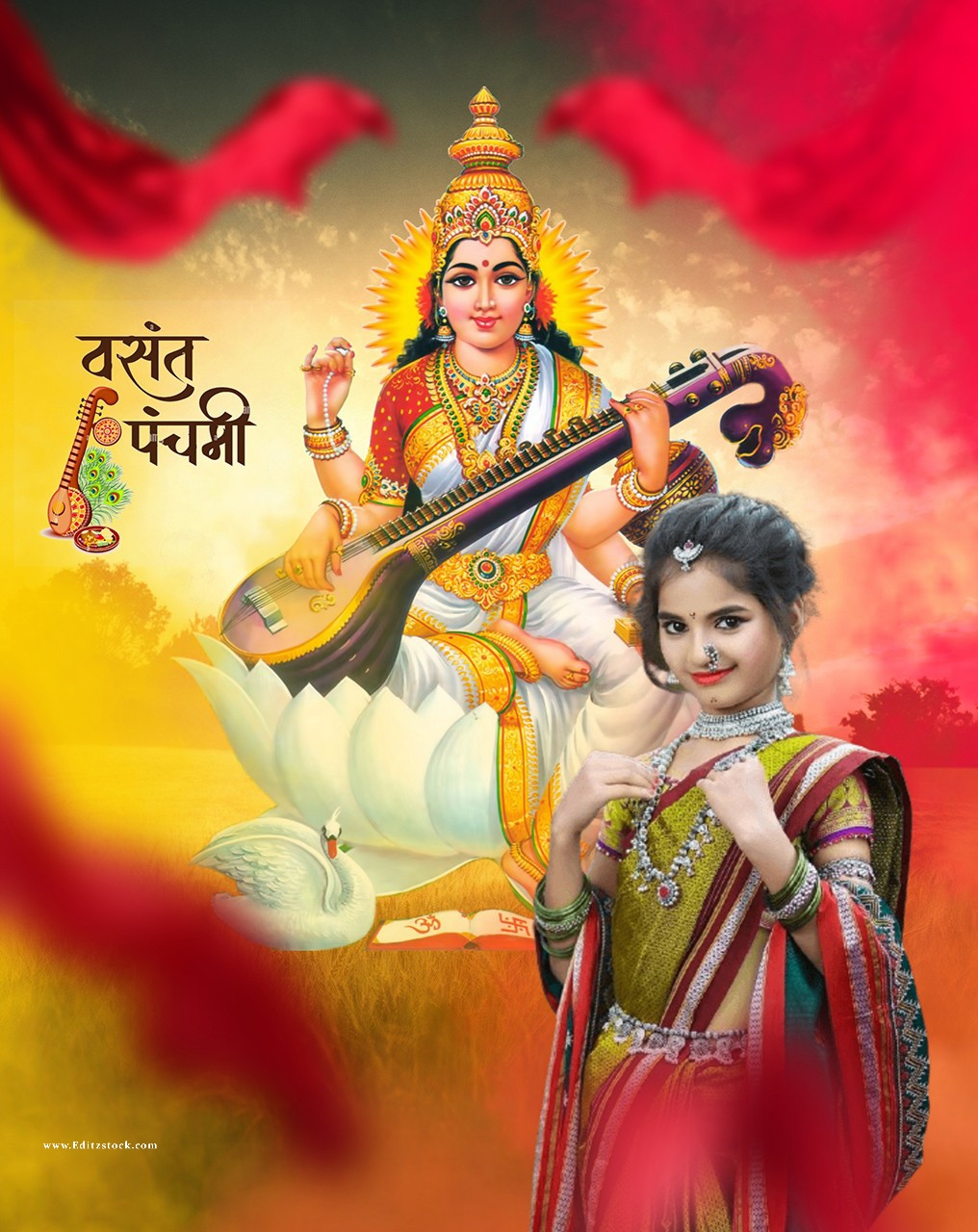SARASWATI PUJA

Saraswati (Sanskrit: सरस्वती, IAST: Sarasvatī) is the Hindu goddess of knowledge, music, art, speech, wisdom, and learning.[1] She is one of the Tridevi, along with the goddesses Lakshmi and Parvati.
The earliest known mention of Saraswati as a goddess is in the Rigveda. She has remained significant as a goddess from the Vedic period through the modern period of Hindu traditions. She is generally shown to have four arms, holding a book, a rosary, a water pot, and a musical instrument called the veena. Each of these items have a symbolic meaning in Hinduism.
Some Hindus celebrate the festival of Vasant Panchami (the fifth day of spring, and also known as Saraswati Puja and Saraswati Jayanti in many regions of India) in her honour, and mark the day by helping young children learn how to write the letters of the alphabet on that day. The goddess is also revered by believers of the Jain religion of west and central India,[8] as well as some Buddhist sects.
This article contains Indic text. Without proper rendering support, you may see question marks or boxes, misplaced vowels or missing conjuncts instead of Indic text.
Etymology
Saraswati, is a Sanskrit fusion word of saras (सरस्) meaning "pooling water", but also sometimes translated as "speech"; and vati (वती) meaning "she who possesses". Originally associated with the river or rivers known as Saraswati, this combination, therefore, means "she who has ponds, lakes, and pooling water" or occasionally "she who possesses speech". It is also a Sanskrit composite word of surasa-vati (सरसु+अति) which means "one with plenty of water".
The word Saraswati appears both as a reference to a river and as a significant deity in the Rigveda. In initial passages, the word refers to the Sarasvati River and is mentioned as one among several northwestern Indian rivers such as the Drishadvati. Saraswati, then, connotes a river deity. In Book 2, the Rigveda describes Saraswati as the best of mothers, of rivers, of goddesses.